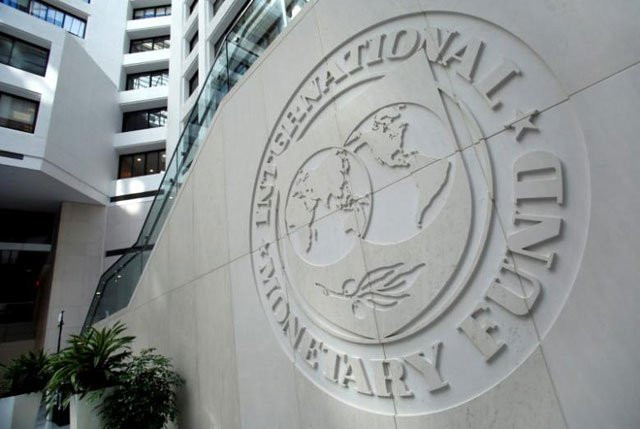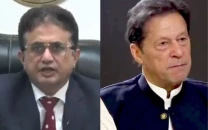IMF postpones Islamabad talks due to security concerns
Negotiations were supposed to review status of Pakistan’s economy

Negotiations were supposed to review status of Pakistan’s economy. PHOTO: Reuters
Both, the Q Block –the seat of the finance ministry – and IMF resident representative in Islamabad Tokhir Mirzoev confirmed to The Express Tribune on Sunday that talks have been postponed for now.
Pakistan and the IMF had a plan to meet in Islamabad for the first time in many years due to the improved security situation. These talks were previously held in UAE.
‘Pakistan headed towards another IMF bailout’
The talks were planned under IMF Article-IV to review the status of Pakistan’s economy, as the country needs IMF certification of good health to keep borrowing from foreign capital markets and multilateral lenders due to its inability to attract non-debt creating foreign inflows. It was supposed to be the first high-level interaction between Pakistan and the IMF after the expiry of the $6.2 billion package that ended in September last year.
Due to security issues, the IMF team had to postpone its visit to Pakistan, said a senior finance ministry official. He said that Pakistan was still trying to convince the IMF to hold talks in Islamabad, therefore, new dates have not been finalised yet.
After a relative calm during past few months, Pakistan has been rocked again by a series of deadly terrorist attacks that have claimed over a hundred lives in just one week. The Article-IV talks have been postponed for logistical reasons and the IMF will announce the new dates as well as venue of the talks as soon as they are finalised, said Tokhir Mirzoev.
Pakistan's economy is out of danger, says IMF chief
The terrorist attacks took place at a time when the military courts set up to hang hardcore terrorists through a speedy justice system stopped working due to expiry of constitutional cover to them. The political parties have not yet reached a conclusion whether to extend the military courts for two to three more years.
Finance Minister Ishaq Dar on Sunday discussed the issue with National Assembly Speaker Sardar Ayaz Sadiq, seeking facilitation for early convening the meeting of special parliamentary committee on the subject of military courts. He said the meeting of the sub-committee of the main parliamentary committee was scheduled for 22nd February and it would be preferable to convene meeting of the main committee on 23 February, 2017. The earlier date for the main meeting was 27th February.
Dar called for a coordinated and fitting response to the terrorists. Early decision on extension in functioning of military courts was very important, as it would strengthen all anti-terror efforts, he stressed.
Economic deterioration
The IMF-Pakistan talks would have revealed deterioration in economic indicators that took place at a rapid pace after expiry of the IMF programme. Pakistan could not consolidate the gains that it had achieved in past three years under the IMF programme.
In reality, the energy sector circular debt have mounted up to Rs384 billion – a net addition of Rs62 billion in just five months. The current account deficit – the gap between foreign payments and receipts, alarmingly widened to $4.7 billion or equivalent to 2.5% of GDP in just seven months. The IMF had estimated just 1.5% current account deficit for the whole fiscal year 2016-17.
IMF confident Pakistan can now handle mild economic shocks
The higher than projected current account deficit would mean that Pakistan’s financing requirements have multiplied. This means more foreign expensive borrowings. The IMF had estimated almost $11 billion financing requirements for this fiscal year – a figure that now appears understated by at least $4 billion, according to independent economists.
Another problematic area was the level of the country’s indebtedness. The IMF had predicted around 60% of GDP debt by 2016-17. However, the debt-to-GDP ratio has already surged to 66.5% last year. The IMF had projected that Pakistan’s official foreign currency reserves would grow to $21 billion by the end of June 2017. But in reality the reserves have slipped below $17 billion. Against the annual target of restricting the gap between expenditure and income to Rs1.276 trillion, Pakistan booked Rs800 billion deficit in just six months.
Published in The Express Tribune, February 20th, 2017.



















COMMENTS
Comments are moderated and generally will be posted if they are on-topic and not abusive.
For more information, please see our Comments FAQ